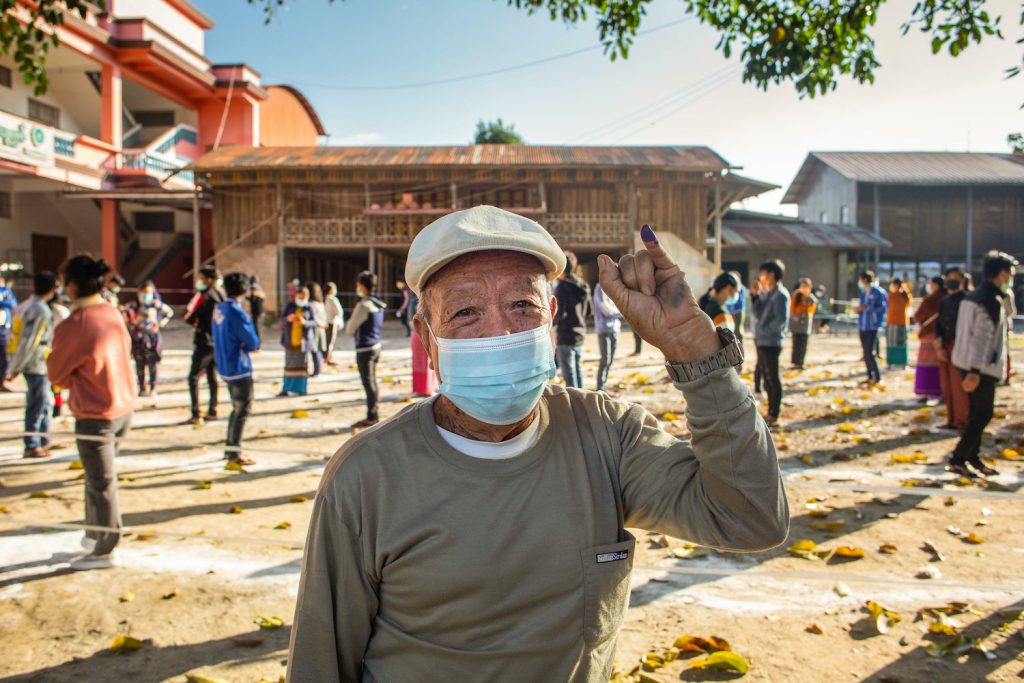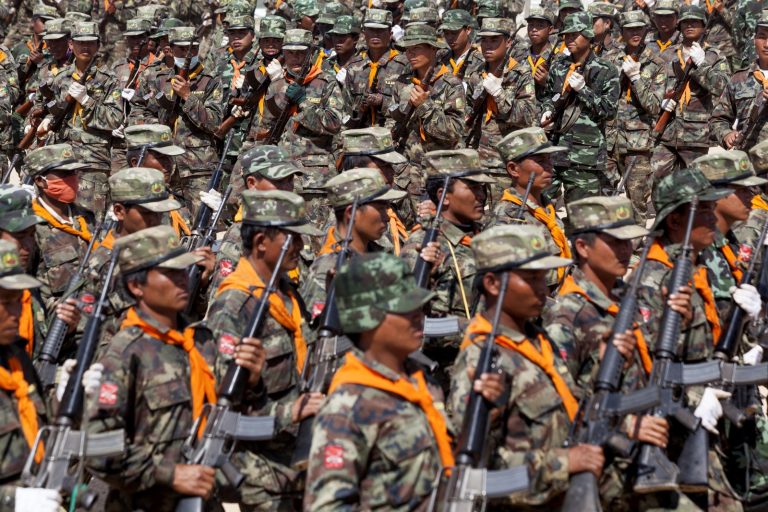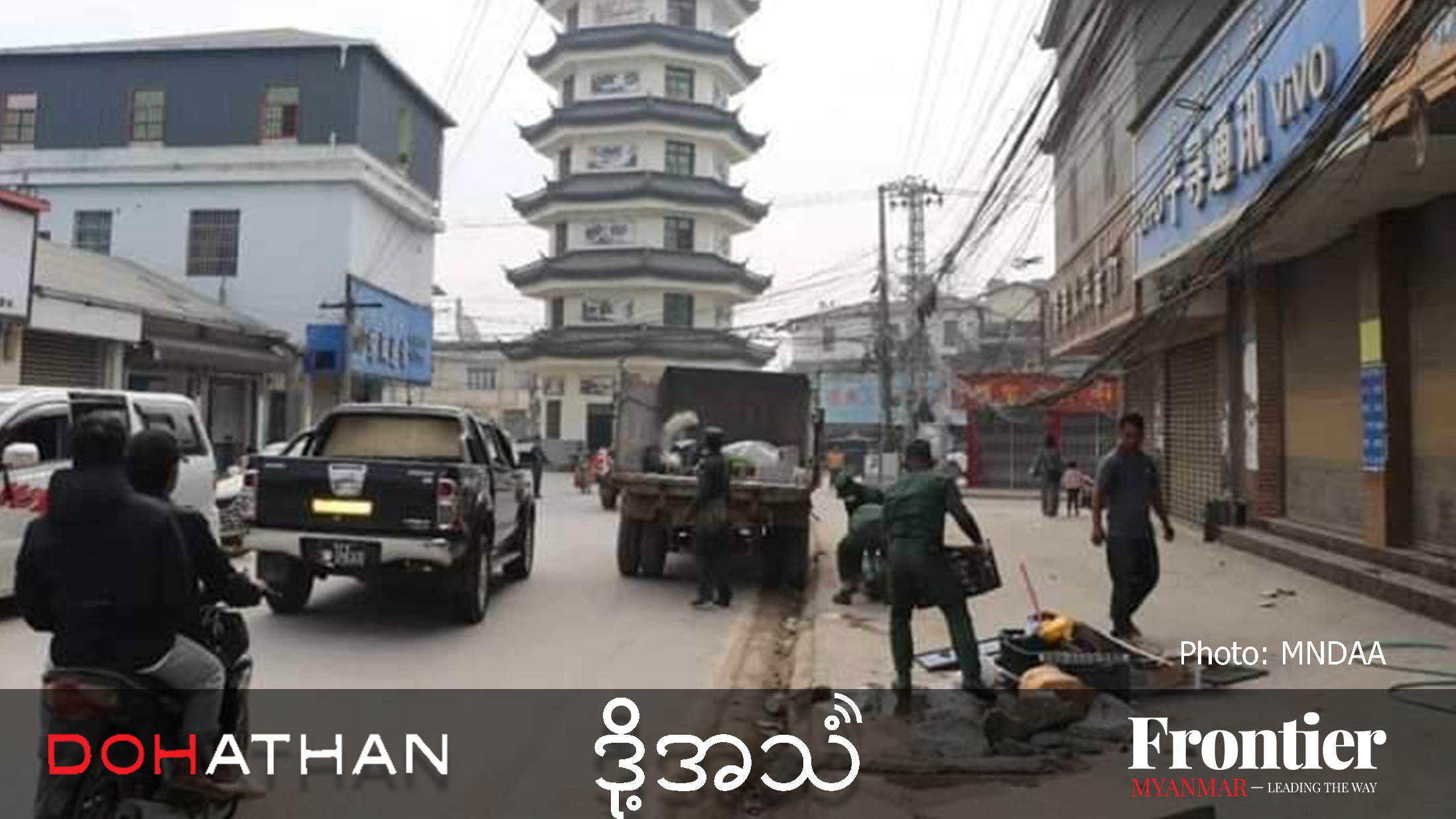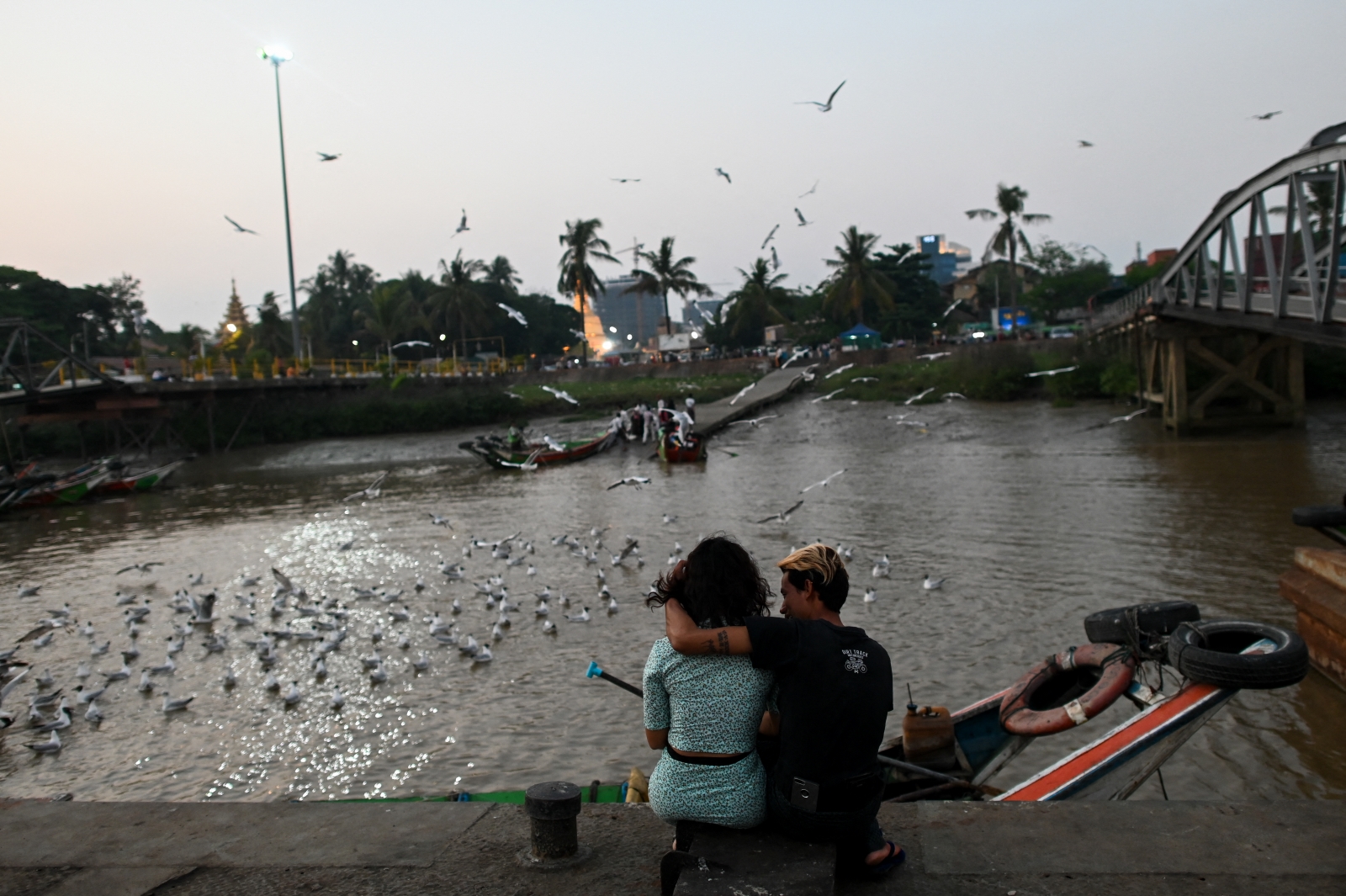The NLD has taken enough seats from the USDP to potentially work with ethnic parties and control the Shan State parliament, following a vote marred by complaints of foul play and the killing of an MP-elect.
By HEIN THAR | FRONTIER
An extra seat here, a loss there: on the face of it, the November 8 election in Shan State didn’t bring about any significant shifts from 2015.
Dig a little deeper though, and the picture becomes more complex. Although there was little change in national-level seats, the National League for Democracy increased its seat count significantly in the state assembly – enough to potentially shift the balance of power.
Come February 2021, when the state hluttaw meets to select the speaker and deputy speaker, every one of those victories is likely to be important.
The speaker is chosen through a vote in the assembly, and any party or coalition with more than 50 percent of seats is guaranteed of having its nominee approved. Less than half could still be sufficient, provided all other representatives do not vote together.
Five years ago, the Union Solidarity and Development Party won enough electoral races that, when it joined forces with the military’s 25 percent bloc, it was able to choose the speaker and deputy outright.
But on November 8, the NLD made enough inroads into the USDP’s seat count that it could make a play for the speaker position by combining forces with the Shan Nationalities League for Democracy, a historic ally.
The NLD snatched seats from the USDP in Lashio, Kengtung and Lawksawk to end up with 33 seats in the state assembly. The SNLD meanwhile won 26 seats, up from 24, although its haul is effectively the same as in 2015 after taking into account voting cancellations.
Together, the NLD and SNLD will have 59 seats. The military and the USDP will also control 59 seats. But there are five other parties, plus two independent candidates, who together won 22 state seats, and building partnerships will be important for securing control of the assembly. The NLD has already begun making overtures at the national level, inviting leaders of 48 ethnic parties from across Myanmar to “cooperate” on building a federal system. “Because the NLD and ethnic parties share the same goal, the NLD will take the aspirations of ethnic parties seriously,” the NLD’s open letter to the parties said.
“We strongly urge like-minded parties to cooperate with us,” NLD spokesperson Dr Myo Nyunt told Frontier on November 13.“Given our experience over the past five years, [we believe that] ethnic cooperation is very important for nation-building.”
Created by Thibi
One thing the USDP has in its favour is close relations with several parties that won seats, including the Pa-O National Organisation (seven seats) and Wa National Party (two seats). In July, the PNO said it had ended an alliance with the USDP under which they did not run candidates against each other in previous elections – which has enabled the PNO to dominate the Pa-O Self-Administered Zone in southern Shan – but there does not appear to have been a major ideological rift between the parties.
The Ta’ang National Party, which won seven state hluttaw seats, told Frontier it was open to offers from any of the major parties. “We will wait and see which party gives us more opportunities and which we think will do the best job for our state,” said U Kyaw Aung, the head of the TNP’s branch for northern Shan State.
So far, only the NLD has reached out to the party, Kyaw Aung said. “We welcome [the NLD’s] open letter and we are willing to negotiate with them,” he said.
Suggesting the TNP might be more amenable to working with the NLD, Kyaw Aung said the previous assembly under the USDP had seen “so much conflict”. He was particularly critical of the USDP state MPs for designating members of the Northern Alliance as “terrorist organisations” even after the Pyidaungsu Hluttaw, Myanmar’s Union assembly, had declined to do so.
“This led to a more complicated situation that encouraged conflict rather than peace talks,” he said. “On that particular issue, some ethnic parties – including the TNP – disagreed with the USDP.”
Cooperation might not be limited to the state assembly, either.
Because it has won more than enough national-level seats to control the presidency, the NLD will again get the chance to pick Shan State’s chief minister. In 2015 it appointed one of its own lawmakers, Dr Lin Htut (Lashio-1), to lead the state government, despite winning fewer seats in Shan than the USDP or SNLD. Although past behaviour would suggest otherwise, there’s some optimism that this time the ruling party might be open to appointing an SNLD lawmaker to the top post in Shan.
“The election results don’t seem to have changed too much from 2015,” said SNLD legal adviser Sai Aung Myint Oo. “But it will be interesting to watch whether the state government and hluttaw will be different from 2015.”
This potential partnership is already facing its first major test, however. On November 21, an NLD MP-elect who won a closely contested Amyotha Hluttaw seat in northern Shan State was shot and killed in the town of Kyaukme. The candidate, U Htike Zaw, had defeated his rival from the SNLD by just 54 votes, in a contest in which they both received almost 110,000 votes in total. The SNLD has denied any involvement and condemned the attack, but a party official told 7Day News Daily that he feared the killing had “driven a wedge between the SNLD and NLD”.
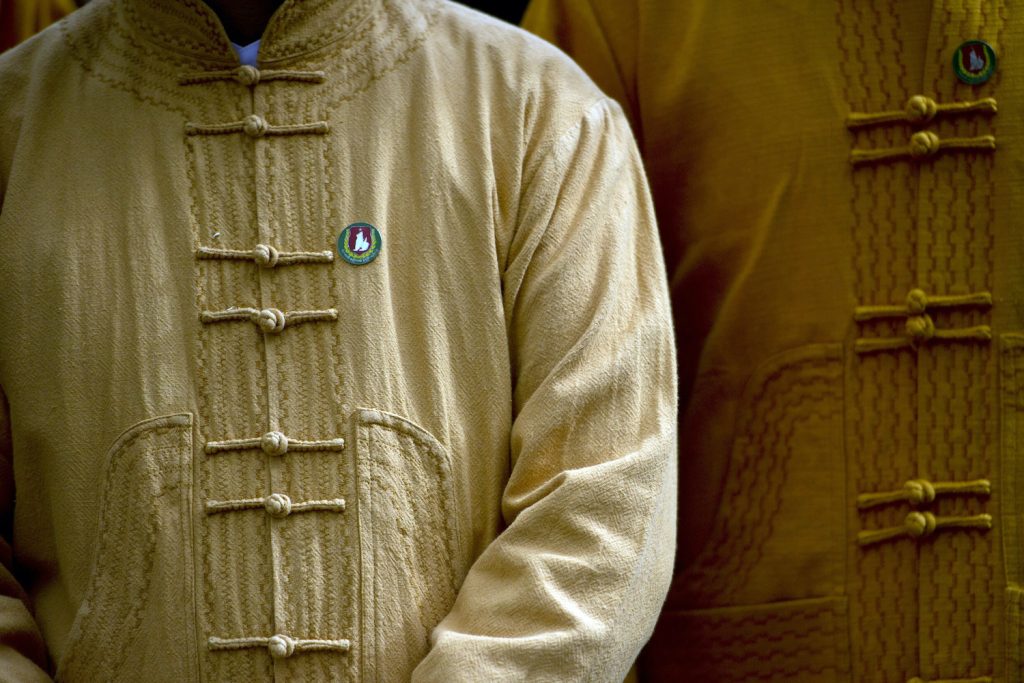
Coalition building
But can the NLD and SNLD reach a deal? The parties were long seen as allies, but relations frayed after the 2015 vote when they were unable to reach a power-sharing deal.
Five years ago, the NLD offered the Shan party three ministerial posts in the state government but the SNLD refused. Shan party leaders said it was because the NLD wanted to hand-pick which SNLD members it would include in the cabinet, but the NLD insists otherwise.
“[The SNLD] wanted the post of chief minister,” said U Aung Kyaw Oo, an NLD lawmaker for Mongton who lost his Pyithu Hluttaw seat on November 8 to the USDP. “I think the NLD will make a better offer to them this year.”
After talks broke down, the SNLD was left chairing two parliamentary committees and the NLD instead appointed four USDP lawmakers to its Shan State cabinet – a surprising decision given the fraught relations between the parties.
Although the NLD also appointed several USDP members to the Union cabinet, they were allies of former speaker U Shwe Mann and subsequently fired from the party. This was not the case in Shan State, where the USDP ministers appeared to have the blessing of the party’s leadership.
Although the state cabinet is formally appointed by the chief minister, political sources in Shan suggested the party had ordered Lin Htut to include USDP members after the SNLD rejected the three positions.
NLD lawmakers would not be drawn on the decision to work with their traditional rival, and whether the partnership had been a success. They said there were regular tensions between USDP and NLD lawmakers over hluttaw decisions, but they did not seem to carry over to the state government.
“There was a lot of friction in this parliament,” Aung Kyaw Oo said. “Chief minister Lin Htut has been criticised for poor performance, but he managed to navigate this tricky situation well.”
However, NLD lawmakers in Shan told Frontier they want their party to give the SNLD a larger role in both the state government and the assembly in order to reduce the USDP’s influence.
“They should be given an important place in Shan State – it’s appropriate for them. I don’t think of them as a rival party,” said an MP from northern Shan who spoke on condition of anonymity.
U Ye Tun, a former Pyithu Hluttaw representative for Hsipaw and political analyst, said he expected the NLD government would offer the SNLD several ministerial posts, or even the chief minister position. He referred both to the NLD’s letter to ethnic parties and remarks from government spokesman U Zaw Htay in which he said the party would form a “national unity government”.
However, he said the Shan State Hluttaw had been dynamic with one party in government and the other partnering with the military to comprise a majority in the assembly.
“If one party gets all the power, it’s like a dictatorship – there won’t be any check and balance,” he said.
SNLD vice chair-1 Sai Nyunt Lwin said the party welcomed talks with the NLD, and is holding a meeting to prepare a response to its letter.
“So far there has been no separate communication,” he said. “We also want to negotiate and hope we can reach an outcome that’s acceptable to both sides.”
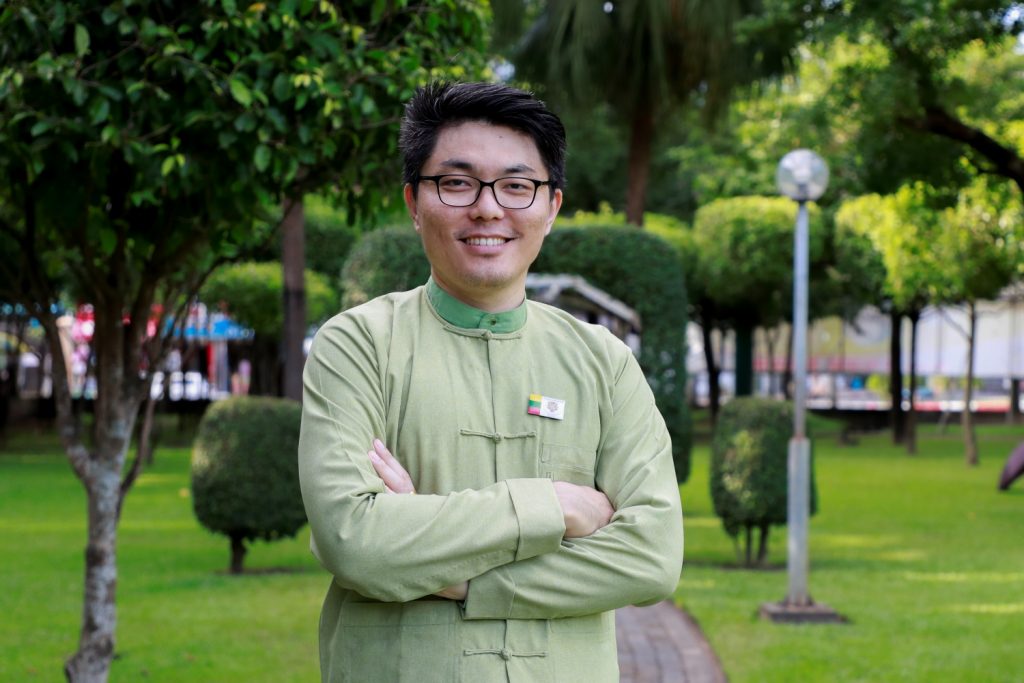
A slew of complaints
The caveat on this talk of coalitions and seat numbers is that the results as they stand now could change, given that many complaints have emerged over the fairness of the vote.
Losing candidates have up to 45 days to submit a complaint about the conduct of an individual race, along with a K500,000 filing fee, to the Union Election Commission, which can respond by forming a tribunal to hear the case. The tribunals have the power to overturn results, and their decisions can only be appealed to a full session of the UEC and not to an independent court.
The USDP has prepared a slew of complaints against the NLD in Shan as part of a broader campaign to have the election re-run. Like their counterparts elsewhere in the country, many USDP candidates in Shan have refused to sign Form 19 to confirm the results of the election with township sub-commissions, although this is not required for the UEC to announce the winners.
In Lashio, the party has accused the NLD of encouraging children to vote and claimed that the chief minister, Lin Htut, campaigned on November 7, despite the UEC designating it a “day of silence” during which campaigning was forbidden. Candidates from three other parties have also refused to sign Form 19 in Lashio.
In Kengtung and Tachileik, meanwhile, USDP officials have sent complaint letters to the township election sub-commissions alleging a range of irregularities, some of which relate to advance votes.
The SNLD has also submitted a complaint regarding advance voting to the township election sub-commission in Mongmit, in northern Shan, where the NLD won all three seats.
It is unclear how many of these complaints will result in cases formally submitted to UEC tribunals.
U Zaw Myint Win, secretary of the Shan State election sub-commission, declined to say how many complaints had been received in total, but revealed the that northern Shan State was the source of the largest share, followed by eastern Shan State.
Many of the complaints were about underage people voting and the USDP submitted the highest number of objections, he added.
However, Zaw Myint Win noted one positive trend: complaints regarding military voting and advance votes from military personnel have declined from 2015.
Some townships, including Lashio, were embroiled in controversy five years ago over out-of-constituency advance votes from military personnel, which tipped a handful of seats in favour of the USDP.
This year, though, the complaints instead focused on in-constituency advance voting, which was significantly expanded due to COVID-19 so that people aged over 60 did not have to visit polling stations on election day.
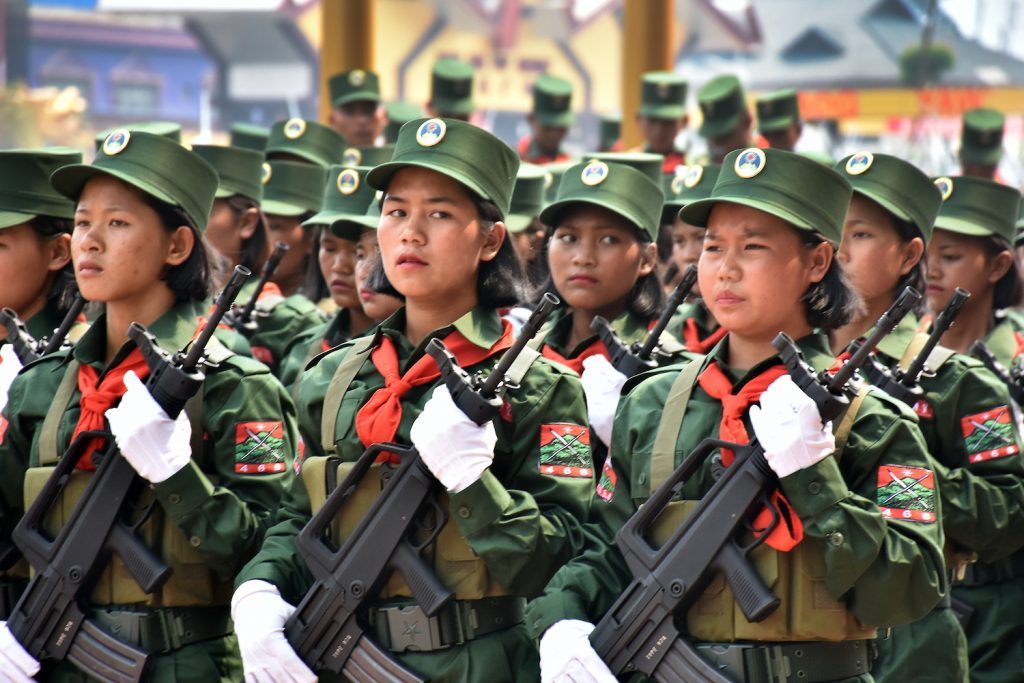
Armed groups flex muscles
In several cases, politicians and parties allege that armed groups sought to unfairly influence the outcome of the vote – an issue that Frontier flagged in an investigation shortly before election day.
The NLD alleges that in Mongton and Mong Hsat townships in eastern Shan State, along the border with Thailand, the USDP colluded with the United Wa State Army to secure election wins.
In 2015, the NLD won the Pyithu Hluttaw seat of Mongton and Mongton-2 in the state assembly, thanks in large part to the support of the UWSA forces in the region.
“In 2015, Wa members voted for the NLD – I don’t know why,” said the Pyithu Hluttaw representative U Aung Kyaw Oo, who lost on November 8 to the USDP. “This year, the UWSA and the USDP made a deal, and I think the Wa cast their ballots for the USDP [for the Pyithu Hluttaw].”
The USDP retained Mongton-1, while the Wa National Party took Mongton-2 from the NLD.
“The southern Wa forces are stationed outside the six townships of the Wa Self-Administered Division … I think they negotiated some kind of land deal with the USDP and in return voted for the USDP and its ally, the WNP,” he said.
Aung Kyaw Oo pointed to the sharp drop in his vote share from 2015, when he won with more than 8,000, or around 40 percent of all votes, more than double the 3,000 he received this year. “It’s clear that the Wa are on the side of the USDP this time.”
In Mong Hsat, the losing NLD candidates have also alleged foul play. “There was voter fraud in those areas. The UWSA’s southern forces pressured polling staff to let underaged people cast votes,” said U Khin Maung Oo, the party’s candidate for Mong Hsat-2.
As the runner up in both townships – and the next in line if the result is overturned – the SNLD has submitted formal complaints to the relevant sub-commission over the issue of underage voters.
Meanwhile in Monghpyak Township, also in eastern Shan, a local militia group has filed a complaint to police requesting legal action against an SNLD candidate for alleged defamation. A local police officer told Radio Free Asia that the SNLD candidate posted on Facebook that the Namyoon People’s Militia Force arranged to transport local residents to polling stations provided they voted for the USDP candidate, who won the state hluttaw seat of Monghpyak-2 ahead of the rival from the NLD. The SNLD candidate is standing by the allegation and the report quoted the head of the NLD’s campaign team as saying he plans to file a complaint to the township sub-commission over the incident.
Militias were also in the spotlight in northern Shan State, where the SNLD candidate for the Shan-3 Amyotha Hluttaw seat sent a letter of protest to the sub-commission and refused to sign Form 19 due to alleged irregularities on election day in a militia stronghold.
The candidate, Maw Tun Awng, said he witnessed cases of underage voting and voting with other people’s ID cards at a polling station in the town of Tarmoenye, in Kutkai Township, on election day. The town is home to a powerful militia, and the son of the militia leader won the Pyithu Hluttaw seat for the USDP. Maw Tun Aung said the commission had refused to investigate, instead directing him to file a complaint to police.
“Based on my experience,” Maw Tun Awng said, “I can’t accept this election as free or fair.”


